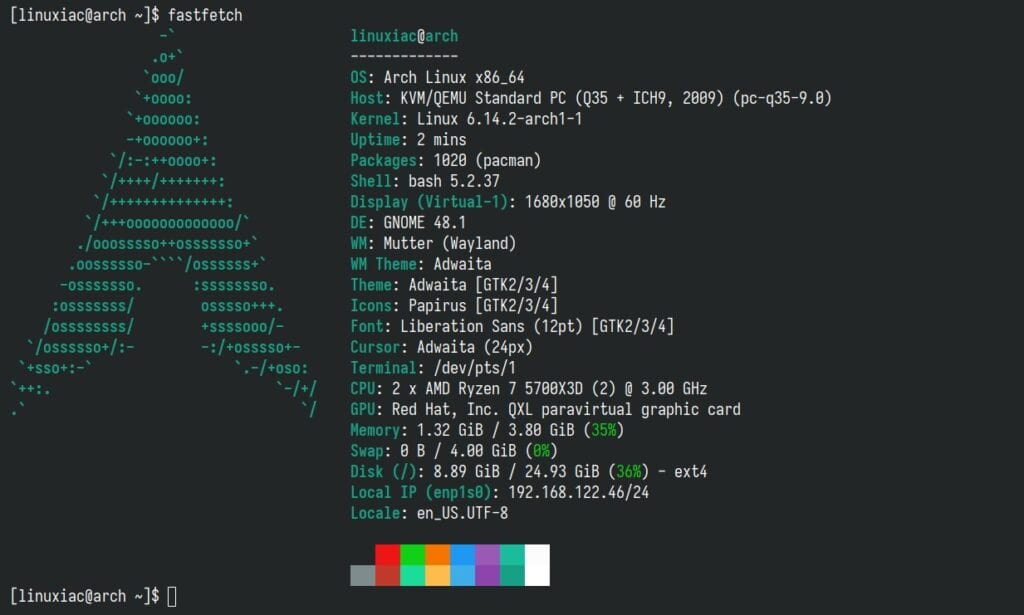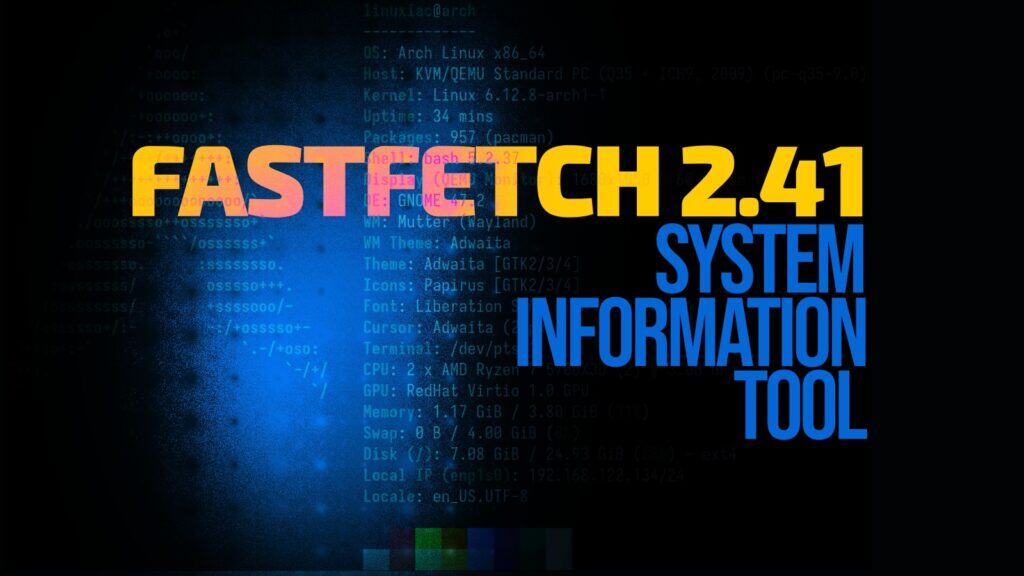Fastfetch, the tool beloved by Linux enthusiasts for showcasing a sleek summary of system information right in the terminal, has just launched its latest update: version 2.41.
On the structural changes side, due to the deprecation of GitHub-hosted runners, the built environment has shifted to Ubuntu 22.04, which supports Glibc 2.35.
On the features front, Fastfetch 2.41 introduces a set of detection enhancements across multiple architectures and operating systems. Notably, the tool now supports physical core count detection on non-x86 CPUs across Linux and FreeBSD.
Similarly, CPU frequency detection has been extended to PPC64 systems under FreeBSD.
under FreeBSD.
Linux users also benefit from new GPU temperature detection for Intel discrete graphics processors, although this feature is still being tested.

Windows users will also notice improvements, including a more reliable method for retrieving CPU temperature data—now functional without requiring administrator privileges—and enhanced full user name retrieval.
Moreover, Fastfetch 2.41 brings preliminary support for basic WiFi information on OpenBSD and introduces a base-level implementation of Bluetooth device detection for NetBSD, responding to growing interest in lightweight BSD setups. Support for soar package counting on Linux has also been added.
Logo customization, a beloved feature for many users, in version 2.41 brings updates that include new ASCII logos for Anduinos and two additional variants for Alpine Linux.
Other under-the-hood improvements include the expansion of known ARM CPU part numbers and various small refinements.
For more information, see the changelog. The tool is included in the repositories of most Linux distributions. To get started, search for “fastfetch” using your package manager and install it.
